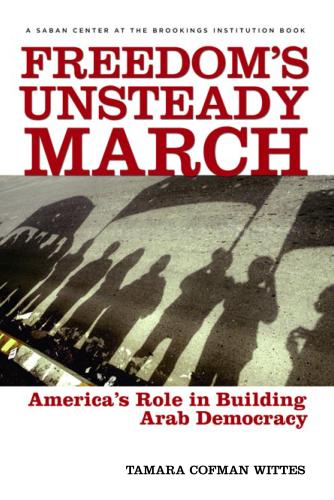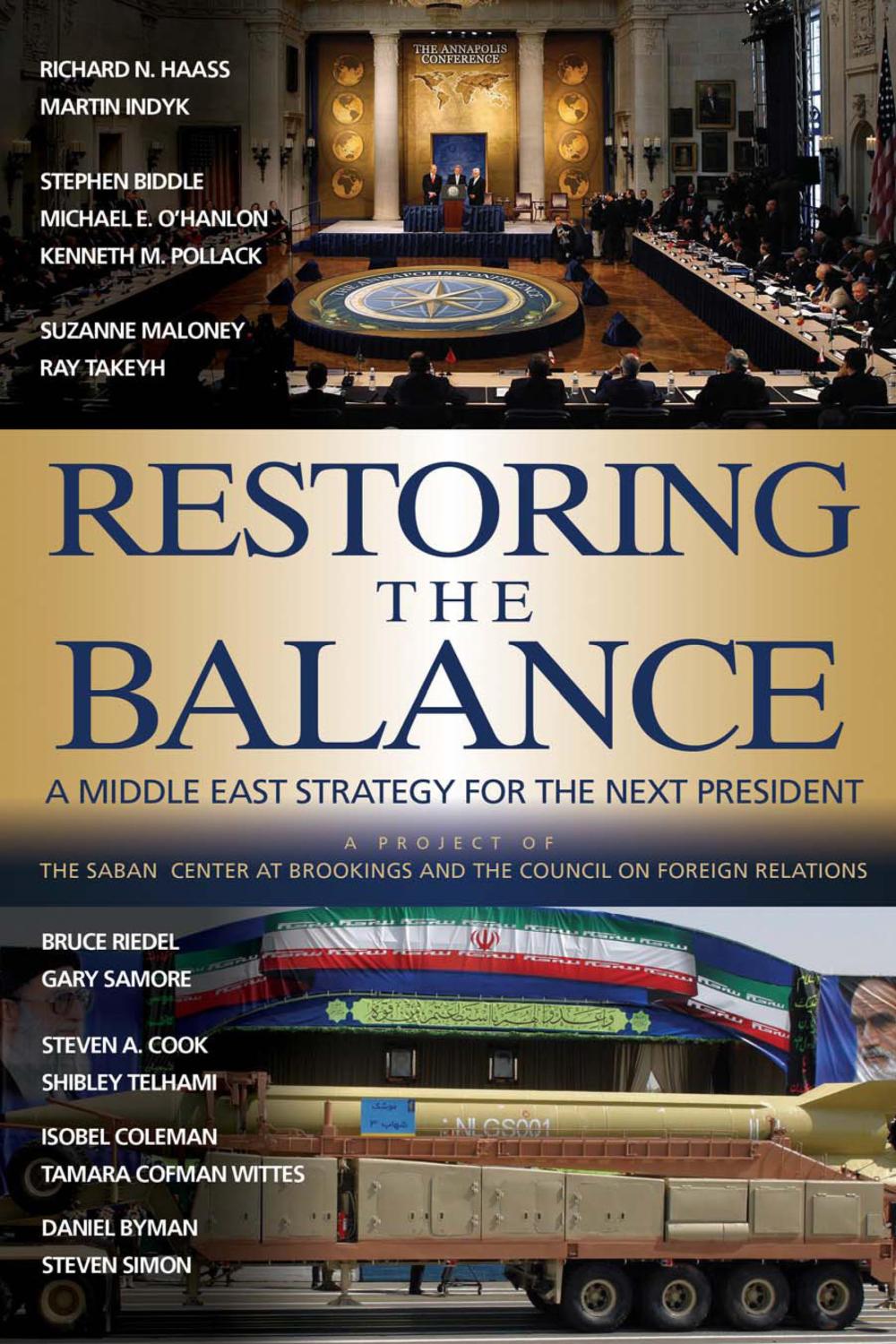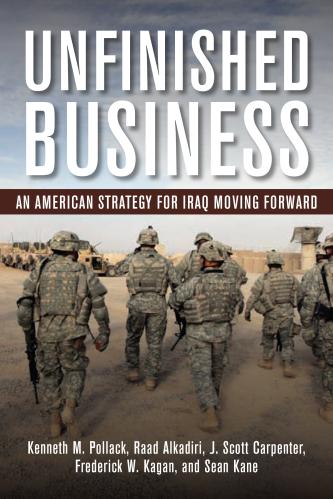


Book
The next U.S. president will need to pursue a new strategic framework for advancing American interests in the Middle East. The mounting challenges include sectarian conflict in Iraq, Iran’s pursuit...
The next U.S. president will need to pursue a new strategic framework for advancing American interests in the Middle East. The mounting challenges include sectarian conflict in Iraq, Iran’s pursuit of nuclear capabilities, failing Palestinian and Lebanese governments, a dormant peace process, and the ongoing war against terror. Compounding these challenges is a growing hostility toward U.S. involvement in the Middle East. The old policy paradigms, whether President George W. Bush’s model of regime change and democratization or President Bill Clinton’s model of peacemaking and containment, will no longer suit the likely circumstances confronting the next administration in the Middle East. In R estoring the Balance, experts from the Saban Center at the Brookings Institution and from the Council on Foreign Relations propose a new, nonpartisan strategy drawing on the lessons of past failures to address both the short-term and long-term challenges to U.S. interests. Following an overview chapter by Richard N. Haass, president of the Council on Foreign Relations, and Martin Indyk, director of the Saban Center, individual chapters address the Arab-Israeli conflict, counterterrorism, Iran, Iraq, political and economic development, and nuclear proliferation. Specific policy recommendations stem from in-depth research and extensive dialogue with individuals in government, media, academia, and the private sector throughout the region. The experts include Stephen Biddle, Isobel Coleman, Steven A. Cook, Steven Simon, and Ray Takeyh from the Council on Foreign Relations and Daniel L. Byman, Suzanne Maloney, Kenneth M. Pollack, Bruce Riedel, ShibleyTelhami, and Tamara Cofman Wittes from Brookings’ Saban Center.
Related Books

Tamara Cofman Wittes
April 2, 2008

Martin S. Indyk
October 8, 2014

Kenneth M. Pollack, Raad Alkadiri, J. Scott Carpenter, Frederick W. Kagan, Sean Kane
February 1, 2011
Authors

Richard N. Haass is president of the Council on Foreign Relations. Until June 2003 he was director of policy planning for the Department of State, where he was a principal adviser to Secretary of State Colin Powell on a broad range of foreign policy concerns. Previously, Haass was vice president and director of Foreign Policy Studies at the Brookings Institution. He was also special assistant to President George H. W. Bush and senior director for Near East and South Asian affairs on the staff of the National Security Council, 1989-93. He is the author or editor of ten books in American foreign policy, including The Opportunity: America's Moment to Alter History's Course. Martin S. Indyk is the director of the Saban Center for Middle East Policy at the Brookings Institution. He served in several senior positions in the U.S. government, most recently as ambassador to Israel and assistant secretary of state for Near East affairs, and he was also a founding executive director of the Washington Institute for Near East Policy.